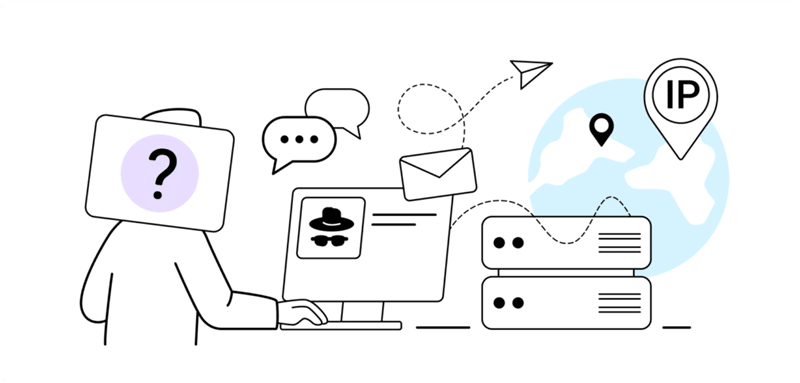Proxies are versatile tools used to maintain anonymity, bypass geo-restrictions, and enhance online security. They come in various types, each with unique features and capabilities. This comprehensive overview explores different types of proxies, categorized by IP address, presentation, rotation, exclusivity, security protocol, source, anonymity, cost, and destination.
Proxies by IP Address

IPv4 Proxies
IPv4 (Internet Protocol version 4) proxies are the most common type of proxy, using the IPv4 address format. They are widely compatible with most internet protocols and services. IPv4 proxies are often chosen for their ease of use and universal acceptance across different platforms. However, the limited pool of IPv4 addresses can make them more expensive and prone to IP recycling.
IPv6 Proxies
IPv6 (Internet Protocol version 6) proxies utilize the newer IPv6 address format, which offers a much larger address space compared to IPv4. These proxies are gaining popularity due to the growing scarcity of IPv4 addresses. IPv6 proxies are generally less crowded, offering a greater degree of exclusivity. However, compatibility issues may arise with some older systems and services that only support IPv4.
Proxies by Presentation
Proxy Lists
Proxy lists are collections of proxy server addresses that are publicly available or shared within specific networks. Users can access these lists to find proxy servers for various purposes. Proxy lists are convenient but may lack reliability, as the proxies are often shared among many users.
Backconnect Proxies
Backconnect proxies are a type of proxy that routes traffic through a pool of rotating IP addresses. They offer greater anonymity and flexibility, allowing users to change IP addresses frequently. This type of proxy is ideal for web scraping and bypassing IP-based restrictions. However, backconnect proxies may be more complex to set up and manage.
DCH Proxies
DCH (Data Center Hosting) proxies are hosted in data centers and are typically used by businesses and organizations. These proxies offer high-speed connections and are less likely to be flagged as suspicious by websites. DCH proxies are often used for high-volume data transfers and business-related tasks. However, they may not offer the same level of anonymity as residential proxies.
Types of Proxies by Rotation
Statistical Proxies
Statistical proxies rotate IP addresses based on predefined patterns or statistical models. This approach ensures that IP addresses are changed at specific intervals, reducing the risk of detection or blacklisting. Statistical proxies are commonly used for web scraping and automation tasks. However, their predictability may be a disadvantage in some scenarios.
Rotational Proxies
Rotational proxies change IP addresses at random or based on specific triggers, such as user actions or time intervals. This unpredictability enhances anonymity and reduces the chances of detection. Rotational proxies are ideal for tasks that require frequent IP address changes, such as scraping, automated testing, or accessing geo-restricted content.
Types of Proxies by Exclusivity
General
General proxies are shared among multiple users, making them cost-effective but potentially less reliable. Since they are used by various individuals, general proxies may experience congestion and slower response times. They are suitable for basic tasks that don't require high-speed connections or strong anonymity.
Semi-dedicated
Semi-dedicated proxies are shared among a limited number of users, offering a balance between cost and exclusivity. These proxies are often used for tasks that require more reliability and speed than general proxies but don't need the complete exclusivity of dedicated proxies.
Dedicated
Dedicated proxies are exclusive to a single user or organization, providing the highest level of reliability, speed, and anonymity. They are ideal for sensitive tasks that require secure connections and consistent performance. However, dedicated proxies are typically more expensive due to their exclusivity.
Types of Proxies by Security Protocol
SOCKS5 Proxies
SOCKS5 proxies are a type of proxy that supports a wide range of protocols, including TCP and UDP. They offer a high level of flexibility and can handle various types of traffic, such as email, file transfers, and web browsing. SOCKS5 proxies are often used for peer-to-peer (P2P) applications and gaming. They provide a balance between security and compatibility.
HTTP Proxies
HTTP proxies are designed to handle HTTP traffic, making them ideal for web-related tasks such as browsing, scraping, and accessing online content. They are commonly used for simple tasks that don't require advanced security features. HTTP proxies may not be suitable for encrypted connections or non-HTTP traffic.
HTTPS Proxies
HTTPS proxies are a secure version of HTTP proxies, supporting encrypted connections. They are used for tasks that require enhanced security, such as online banking, e-commerce, or accessing sensitive information. HTTPS proxies provide a higher level of security but may require additional setup and configuration.
Types of Proxies by Source
- Data Center Proxies: These proxies are hosted in data centers, offering high-speed connections and reliable performance. They are commonly used by businesses for data-intensive tasks. However, they may lack the anonymity of residential proxies.
- Residential Proxies: Residential proxies use IP addresses from residential internet service providers (ISPs). They offer a higher level of anonymity, as they mimic regular users. Residential proxy are ideal for tasks that require a genuine user experience.
- Mobile Proxies: Mobile proxies use IP addresses from mobile carriers, providing an additional layer of anonymity. They are commonly used for tasks that require a mobile user experience or to bypass mobile-specific restrictions.
- Static Residential Proxies: These proxies use residential IP addresses but remain static, providing consistent connections. They are ideal for tasks that require a stable IP address, such as hosting services or maintaining persistent connections.
Types of Proxies by Anonymity

Proxies can also be classified based on their level of anonymity:
- Transparent Proxies: These proxies do not hide the original IP address, making them less secure but useful for tasks that don't require anonymity.
- Anonymous Proxies: Anonymous proxies hide the user's original IP address, providing a moderate level of anonymity. They are commonly used for basic privacy needs.
- Elite Proxies: Elite proxies provide the highest level of anonymity, concealing both the user's IP address and the fact that a proxy is being used. They are ideal for sensitive tasks that require strong security and privacy.
Types of Proxies by Cost
Proxies can also be categorized based on their cost:
- Free Proxies: Free proxies are available at no cost, but they often come with limitations such as slow speeds, limited bandwidth, or security risks.
- Paid Proxies: Paid proxies offer better performance, reliability, and security. They come in various pricing tiers, depending on factors like exclusivity, speed, and features.
Types of Proxies by Destination
- Forwarding Proxies: Forwarding proxies route traffic from the user to the destination server. They are commonly used for web browsing and basic tasks.
- Reverse Proxies: Reverse proxies route traffic from the destination server to the user, providing additional security and load balancing. They are often used in server-side applications and content delivery networks (CDNs).
These are the most common types of proxies, each with unique characteristics and use cases. Understanding the differences between them can help you choose the right proxy for your specific needs, whether for online anonymity, bypassing restrictions, or enhancing security.
